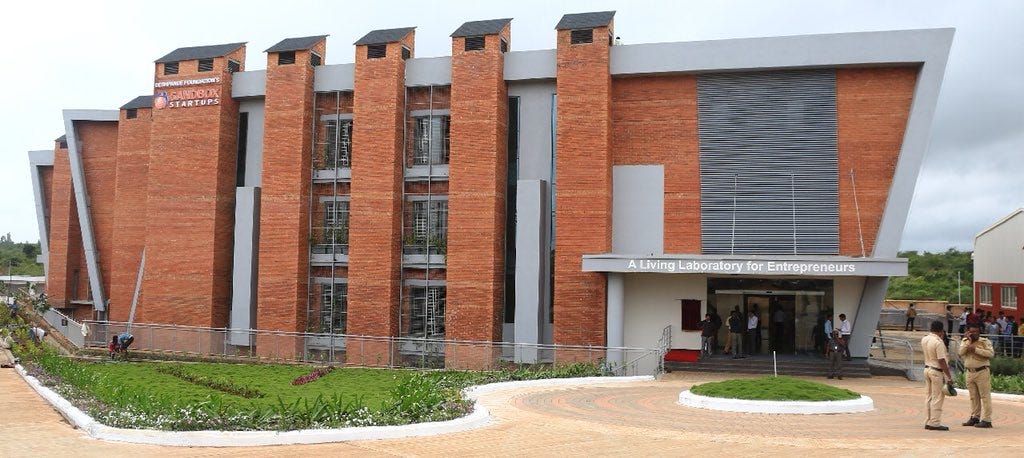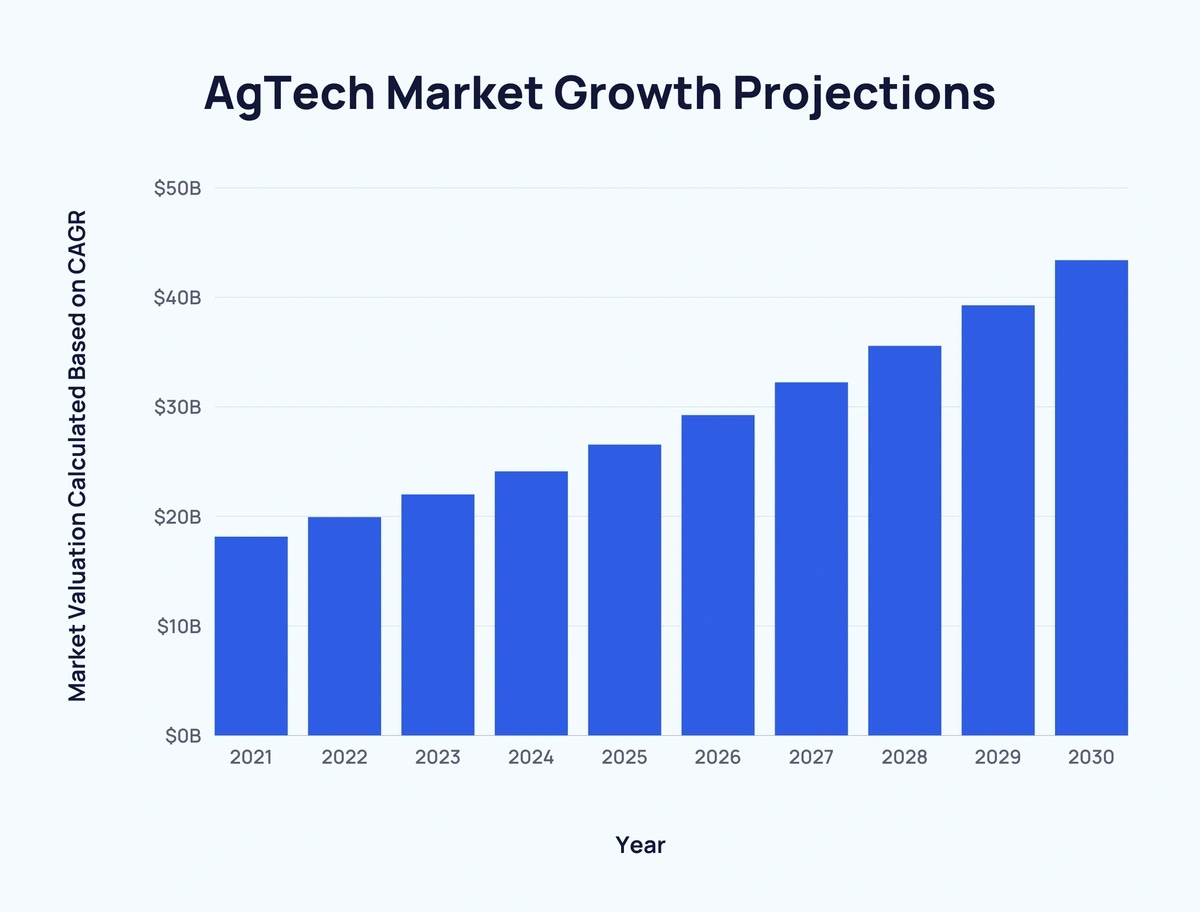Academic Entrepreneurship: Off the Beaten Path
Sudha Karbari, an inspiration to woman entrepreneurs
The recent shock of food scarcity during the COVID pandemic affected 40% of the global population, and this is a mere glimpse of what lies ahead. According to the United Nations, this can be the grim reality we face in the next 30 years if we don’t act now.
For a nation whose economic backbone is rooted in agriculture, the ominous statistics of nearly 30% of its land degraded should send a sobering message. While hydroponics and tech innovations offer hope, we should realize the significance of restoring what we've damaged.
Soil, the very foundation of agriculture, is getting abused by overuse of chemicals. An alarming 5.3 billion tonnes of soil is lost annually in India alone. It's time we prioritize revitalizing and rehabilitating our soil to secure our food and future.
Sudha Karbari, the founder of Arkashine Innovations, understands this all too well. She is an academician-turned-entrepreneur who decided to take a bold step toward making a meaningful impact on the lives of farmers and the health of our soil.
The Inspiration: Soil Health and Agriculture
During the peak of the COVID pandemic in 2021, Sudha's city-accustomed life took a new direction when she had the opportunity to visit her native place in Bidar, where she experienced agriculture firsthand and witnessed hardships faced by farmers. It fueled her desire to create a social impact and give back to society.
She delved into extensive secondary research but soon realized it was essential to understand her customers - the farmers and their needs. Thus, Sudha began communicating with farmers in Bidar and Kolar regions to gain deeper insights into their challenges.
The dire state of deteriorating soil conditions and its impact on crop production became evident during her interactions. Climate change further aggravated the situation, putting immense pressure on the soil to meet the ever-increasing demands for crop production. Sudha recognized the urgency of the matter - the need to restore and improve soil health.
Her approach involves collecting data on the soil, analyzing it, and enabling farmers to make data-driven decisions. Sudha hopes to offer much more than mere data points that farmers find hard to comprehend and act on.
Globally, around 324 agri-tech startups are developing soil-monitoring solutions, which not only indicates the immense potential and market interest in automated and data-driven agricultural practices but also serves as a validation of Sudha’s startup idea.
The Birth of a Solution: Portable Soil Testing Device:
Determined to make a difference, Sudha conceptualized a holistic approach to soil health with her portable soil testing device. The device considers physical, chemical, and biological aspects of soil health and goes beyond providing detailed parameters like NPK, pH, Organic Carbon, Moisture, CO2 Respiration rate, etc.
It translates this data into actionable insights for farmers, recommending the required fertilizer quantity per hectare/acre and suggesting the five best crops based on the soil's health, encouraging farmers to adopt crop rotation techniques for improved sustainability. Sudha's solution combines data with practical guidance.
The collected data is then stored on the cloud to maintain records, and the GPS model tracks the land location for precise results. Real-time information is also available on the website for any further research.
Overcoming Challenges:
Sudha's entrepreneurial journey came with its own challenges. From the beginning, she faced resistance from her family, who worried about the risks associated with startups, as statistics indicate that approximately 90% of them fail.
Undeterred, Sudha remained enthusiastic and highly self-motivated. She bootstrapped her business with the money she saved from working as a professor and continued developing a solution for the greater good.
With a minimum viable product (MVP) in hand, she is now rigorously testing her device and bridging the gap between lab-scale testing and field conditions, as this transition is presenting dynamic parameters beyond human control.
Over the next six months, Sudha and her team will follow an agile model, continuously modifying the MVP based on identified flaws and aiming for maximum automation and user-friendliness.
Realizing the potential impact of her innovation, Sudha sought assistance to secure intellectual property rights, paving the way for her startup's growth. She also received funding of Rs 60 Lakhs through the SISFS Grant and the BIRAC BIG Grant, which is a validating factor of her startup idea and a boost to her confidence.
The Role of Incubators:
Sudha understood the significance of incubators and chose Hubballi’s Deshpande Startups, an agri-centric incubator that aligned with her vision.
Under this, she joined the NIDHI-EIR program and got access to the EDGE Program, where she experienced the academic-to-entrepreneurial transformation in mindset.
During the cohort, Sudha validated her idea and gained clarity on various aspects of being a startup founder. The programs reinforced her ambition and provided enough exposure to the startup industry.
“When I joined NIDHI-EIR and the EDGE Program, it thoroughly sunk in that what I’m doing will impact people, and I need to work even more seriously on my product,” says Sudha.
She also attended the Agri Day Expo in Bangalore, where she explained her concern and vision on soil health. Her idea piqued the interest of potential customers, who flooded her with questions and further inquiries about her product. This positive response reaffirmed her resolve to build her venture.
The Edge program's Jobs To Be Done (JTBD) model and mentorship from a Branding and Marketing expert helped Sudha formulate a robust Go-to-Market strategy, resulting in three pre-orders for her innovative device.
“The facilitators were always ready on their toes to help me out and executed the tasks, from finding mentors to pitching practice; it was all taken care of,” says Sudha
appreciating the help she received from the Deshpande ecosystem.
Business Model and the Road Ahead:
Sudha's startup is exploring various business models. Currently focusing on B2B partnerships with Farmer Producer Organizations (FPOs) and eventually adopting a B2B2C approach.
By connecting with FPOs and deploying one machine to every village or assigning one employee along with the device, Sudha aims to equip farmers to make informed decisions.
Sudha's journey showcases the immense potential and opportunities in the agri-tech sector, particularly in India, where the government actively supports initiatives through programs like the Agriculture Accelerator Fund and Atmanirbhar Clean Plant Programme.
With a significant outlay of Rs 2200 crore for these programs, it is evident that the government is keen on fostering innovation in agriculture and supporting homegrown innovators.
The projected growth of the global agri-tech market is over $40 billion by 2030. It shows the high demand for innovative solutions that can improve agriculture practices, increase productivity, and address sustainability concerns.
Innovation in agriculture is the need of the hour, and with the proper support and determination, your disruptive idea could be the catalyst for positive change in the industry. So, don't hesitate to take the first step and explore the possibilities that lie ahead.
We at EDGE extend an ideal space for you to experiment, validate, and build ventures.
For further queries, mail us at edge@dfmail.org or visit our Website!









